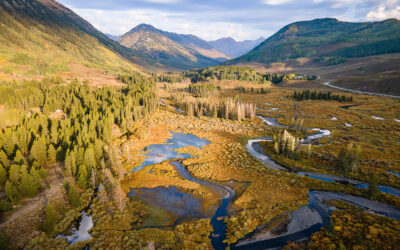Reposted news release from the office of Senator Cortez Masto.
Washington, D.C. – U.S. Senator Catherine Cortez Masto (D-Nev.) today introduced legislation to get critical water use data in the hands of farmers, ranchers, and decision-makers for improved water management across the Western U.S. The Open Access Evapotranspiration (OpenET) Act would establish a program under the Department of the Interior (DOI) to use publicly available data from satellites and weather stations to provide estimates of evapotranspiration (ET), a critical measure of the water that is consumed and removed from a water system. ET represents the largest share of water use in most arid environments around the world. Companion legislation is being introduced in the House of Representatives by Congresswoman Susie Lee (D-Nev.-03), Congressman Chris Stewart (R-Utah-02), and Congressman Jared Huffman (D-Calif.-02).
“With Nevada and states across the West facing drought, we need to make it as easy as possible for our communities to conserve water and for farmers and ranchers to effectively manage their water use,” said Senator Cortez Masto. “My legislation will help accomplish that goal by equipping Nevadans with this critical water data. This data will help us protect our water resources and ensure our crops, livestock, and wildlife have water access, and passing this bill would mark a significant step in our plan for a more sustainable future.”
“The West faces a historic drought that demands action and innovation,” said Representative Susie Lee. “All of Nevada is currently in drought, and the entirety of my district, Nevada’s Third District, is in exceptional drought, the highest classification. In order to solve our water crisis, we need to better understand how much water is available and how much water is being used. With this program, we will have credible, transparent and easily accessible data on our consumptive water use so that we can make better water management decisions in Nevada and across the West.”
“Extreme drought fueled by climate change has become a dire challenge in the western United States, and it’s critical for us to operate with the best information and data possible as we manage this increasingly limited resource,” said Representative Huffman. “Knowing key water metrics like evaporation rates is incredibly valuable for folks across all sectors, and I‘m glad to join Representatives Lee and Stewart and Senator Cortez Masto in this bill to help farmers, water utilities, regulators, and governments alike all make well-informed water management decisions.”
“Water is the lifeblood of the American West, and the ongoing drought is taking a toll on everyone,” said Representative Stewart. “It’s absolutely necessary that we get the most use out of the water we already have. That starts with giving states more consistent, accessible, and accurate data. This legislation will allow us to be more prudent with our current resources and plan for the future of our communities.”
“The Nevada Division of Water Resources strongly supports the continued development and public accessibility of OpenET,” said Adam Sullivan, Nevada State Engineer, Nevada Division of Water Resources. “This outstanding program directly benefits water users throughout Nevada and the West who strive to improve efficiency and conserve water. Public access to these data will be increasingly vital to support water users and responsible water management needs into the future.”
“OpenET will allow water managers to assess how much water is being used via a cost-effective and easy-to-use web-based platform, filing a critical data gap in water management across the U.S.,” said Zane Marshall, Director, Water Resources, Southern Nevada Water Authority. “The Authority believes OpenET is a valuable tool for federal, state, and local policymakers and water users.”
“It’s more important than ever to provide consistent, accurate information to water users and water managers to allow them to make the most efficient decisions about water use,” said Desert Research Institute President Kumud Acharya. “OpenET is an innovative approach that provides agricultural water users and water managers access to the same information on consumptive water use. I appreciate the leadership of Nevada Senator Catherine Cortez Masto and Nevada Congresswoman Susie Lee on this important piece of legislation.”
“OpenET has been developed in close collaboration with partners from agriculture, cities, irrigation districts, and other stakeholders across the West,” said Laura Ziemer, Senior Counsel and Water Policy Advisor, Trout Unlimited. “OpenET is a forward-looking tool for supporting TU’s goals of water conservation and meaningful water allocation to promote the sustainability of both agriculture and watershed health.”
The West is facing the devastating impacts of increased drought and a changing climate, and to maximize the benefits of our water supplies, we must know how much water is available and how much is being used. Access to this data has been limited, inconsistent, and expensive, making it difficult for farmers, ranchers, and water managers to use it when making important decisions that could benefit communities. The OpenET program brings together an ensemble of well-established methods to calculate ET at the field-scale across the 17 Western states. Applications of this data include:
- Assisting water users and decision-makers to better manage resources and protect financial viability of farm operations during drought;
- Developing more accurate water budgets and innovative management programs to better promote conservation and sustainability efforts;
- Employing data-driven groundwater management practices and understanding impacts of consumptive water use.
The bill text can be found here.
Senator Cortez Masto has worked to safeguard Nevada’s water and landscapes and the agricultural and outdoor recreation industries that rely on them. Her legislation to combat drought and protect the water supply in western states recently cleared a key Senate committee hurdle, and she is also leading a bipartisan bill to restore Lake Tahoe. She has introduced comprehensive legislation to prevent wildfires, fund state-of-the-art firefighting equipment and programs, and support recovery efforts for communities impacted by fires.


